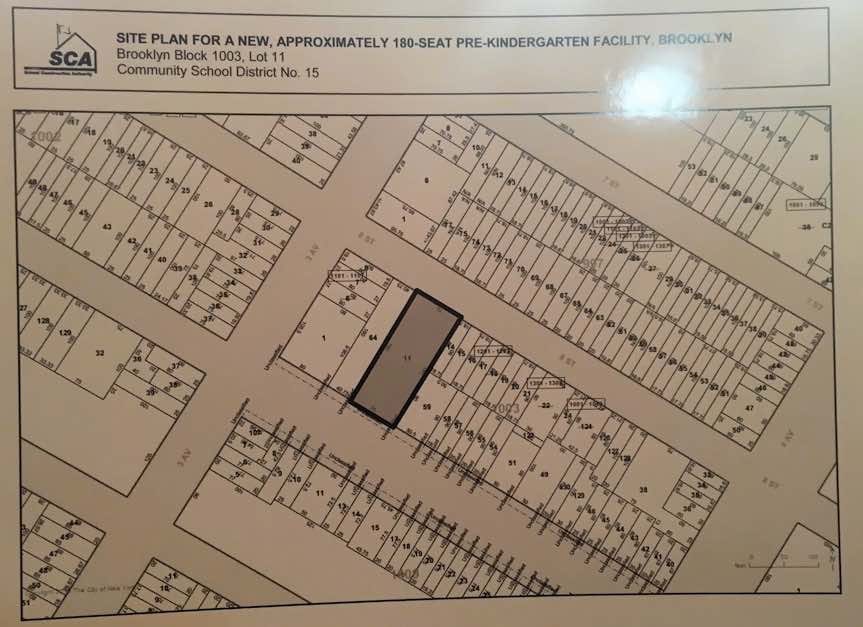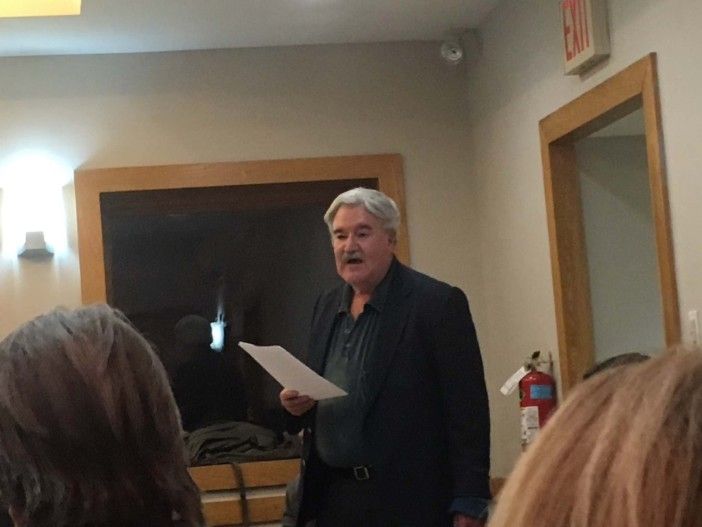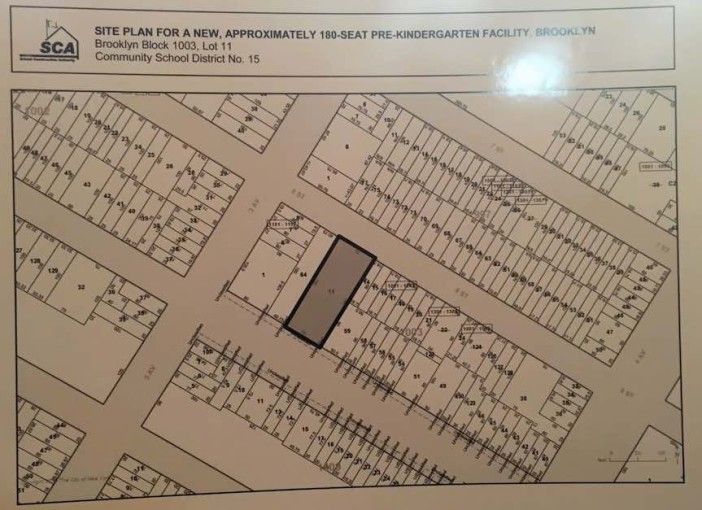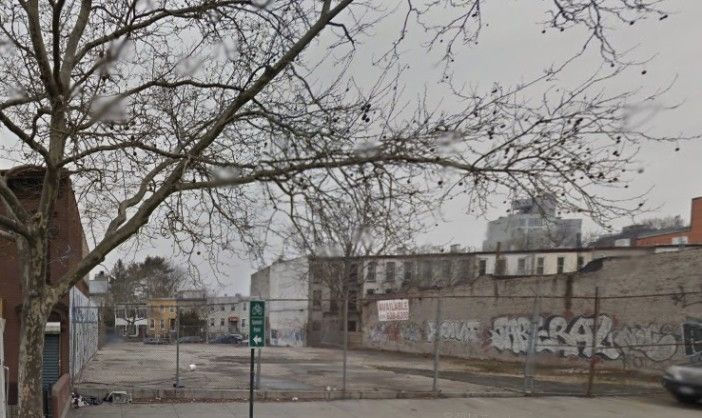‘Before You Build, You Must Dig’ Is Public Outcry As CB6 Committee Votes On Gowanus Pre-K Plan


Archaeology, history, nearby neighbors, and education make strange and fascinating bedfellows.
The Youth/Human Services/Education Committee of Community Board 6 conditionally approved a plan for an approximately 180-seat Pre-K center on 9th Street, between 3rd and 4th Avenues, in Gowanus.
In a well-organized and well-attended meeting that took place at the Prospect Park YMCA, members of the CB6 committee, the Community Education Council of District 15, and the general public heard a presentation by the NYC School Construction Authority.
Fred Maley, director of external affairs for SCA, said that 35 Pre-Ks opened up this September. He also pointed out that this pre-K project is “one of the few sites in the city that — if approved — would be built from the ground-up. The goal here would be to plan ahead for future needs.”
Vicki Sell, a public education specialist from Council Member Brad Lander‘s, office read his statement in support of the project, the need to address issues of overcrowded schools, and that the project is a “real ‘win/win’ for families in Park Slope, Gowanus, Carroll Gardens, and throughout District 15.”
In addition, Sell notes Lander’s opinion concerning the controversy about the land being the possible site of a mass grave of the Maryland 400, an army regiment that joined the rest of the American troops in August 1776 for the Battle of Brooklyn (also referred to as the Battle of Long Island). “The evidence does not support need to continue a review,” read Sell.

The question of the mass grave was a primary source of concern from multiple members at the meeting.
“The government of the city through the Landmarks Preservation Commission‘s archaeologist and its contractors AKRF, and the Old Stone House, are so determined to ignore or monopolize Revolution commemoration and ride roughshod over our noble history, that they routinely denigrate efforts to locate the Marylanders,” said Robert Furman, president of the Brooklyn Preservation Council.
Eymund Diegel, who the New York Times cites as “an environmental planner who may well be the foremost expert on the hydrology of the Gowanus watershed” also spoke about his serious concern for the site choice.
“You [the SCA] picked the absolute worst site in neighborhood for a proposed school. Clearly someone has not done their homework,” said Diegel. “This is the very first cemetery for soldiers…I am pro-development…without this site there would be no America.”
In a succinct statement greeted with enthusiasm by many members of the general public, Lorraine Muczym spoke of her childhood learning about the Maryland 400. “Before you build, you must dig,” said Muczym. “Find the money. Dig.”
Maley of the SCA reiterated that the project could not move forward without the approval of New York State Preservation Office. “We’re not a private developer,” said Maley. “We follow rules and regulations of the preservation office. We’re not in it for money.”

Neighbors living nearby expressed concerns, with the general sense that there should be more information available at this point. Questions that were asked included: What is timetable? Where are the traffic studies? What side will entrance be on, the 9th Street or 8th Street side? Will there be a playground?
Kenrick Ou, senior director of real estate for the SCA, noted that many steps needed to take place before any there would be any approvals — and that it would be a long process.
“The submission for environmental impact analysis would take place in spring 2016, and there would then be a design and construction period.” He estimated that an approved school would not be completed until September 2018.
Other concerns from both the general public and the committee included the imbalance of crowded schools to under-enrolled schools in both Districts 13 and 15. Maley — who was complimented by one attendee for his knowledge of the history surrounding the project — emphasized the amount of new residential buildings in the area and the need to plan for the future.
Also raised was a concern that if the property was sold to a private developer, the lack of public input could be substantial.
The committee convened after the presentation and public statements, voting unanimously to conditionally approve the project. The conditions include that the SCA provide a preliminary report to CB6 on state historic rulings (archaeological dig), a design review by CB6, an inclusion of a public art element, that the SCA retain a private consultant for a traffic analysis, and that a community advisory committee be established to monitor construction.
Written public comments about the project can be submitted through December 13 to the following address:
New York City School Construction Authority
30-30 Thomson Avenue
Long Island City, New York 11101
Attention: Ross J. Holden




